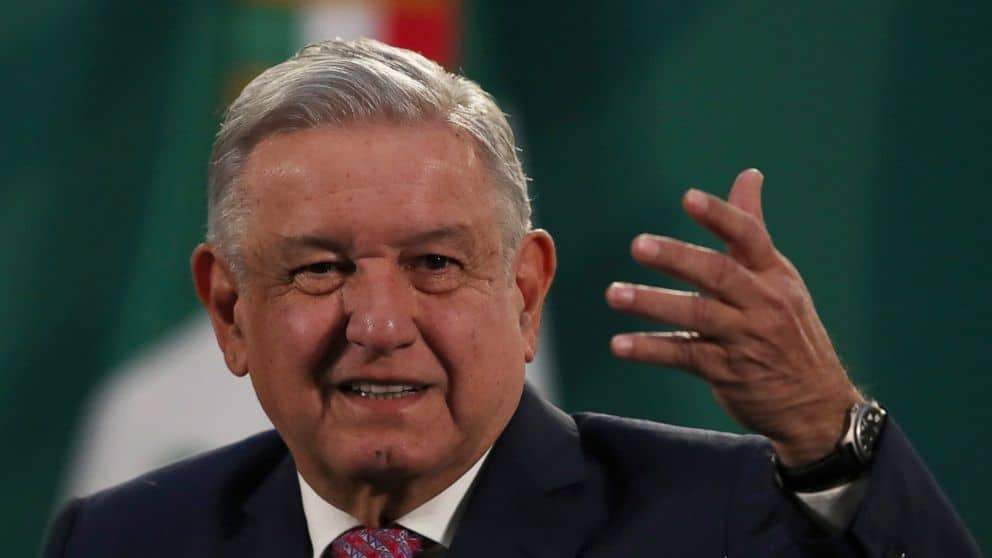Mexico to require appeals on social media account blocking
Wednesday, February 10, 2021
Categories: ASCF News Emerging Threats National Preparedness

The party of President Andrés Manuel López Obrador presented for public comment a proposed set of regulations on Twitter, Facebook and other social media companies, a move that drew criticism Tuesday.
The new law proposed Monday by López Obrador's Morena party would open the companies to fines of up to $4.4 million for violating users’ right to free speech. The law would apply only to platforms that have over one million users in Mexico, apparently covering only sites like Facebook, Twitter, Instagram, TikTok or YouTube.
The proposal would allow anyone whose account is blocked or canceled to appeal the decision. The appeals would go first to the company’s own internal committees, which would have 24 hours to affirm or revoke the suspension. Users could then appeal to telecom regulators, and if they don't like that decision, they could then further appeal cancellations through Mexican courts.
“After the blocking in January of the personal accounts of then President of the United States, Donald Trump, we had already warned on the risk of the emergence of disproportionate bills to regulate information on these platforms," Jorge Canahuati, president of the InterAmerican Press Association. said in a statement.
The head of the group's Committee on Freedom of the Press and Information, Carlos Jornet, wrote that “a bad law can generate a boomerang effect, deconstructing decades in which freedom of expression was consolidated in Mexico.”
Sen. Ricardo Monreal, the Morena party’s leader in the Senate, hopes to submit the new law for approval in three weeks.
“One of the things that affects freedom of expression occurs through impeding the right to receive information, by blocking content, as has happened in recent cases with Twitter,” according to a draft of the law that Monreal published on his web site.
The law could run afoul of the U.S.-Mexico Canada free trade agreement, which states that “no Party shall impose liability on a supplier or user of an interactive computer service on account of ... any action voluntarily taken in good faith by the supplier or user to restrict access to or availability of material that is accessible or available through its supply or use of the interactive computer services and that the supplier or user considers to be harmful or objectionable.”
Monreal argues that the clause doesn't apply to Mexico for another 2 1/2 years, though it would presumably invalidate the law in the future.
The proposed bill acknowledges that companies have their own rules of use and online community behavior, but says “it is necessary that these (internal) procedures be regulated by law, so that based on that decision, an administrative or legal appeal can be made, in order to enforce users' human right to justice."
The bill says companies cannot resolve disputes over blockings or account cancellations by using algorithms, but rather must use human committees.
In January, López Obrador vowed to lead an international effort to combat what he considers censorship by social media companies that have blocked or suspended the accounts of former U.S. President Donald Trump.
López Obrador was close to Trump and was outraged by the blocking of his accounts. Like Trump, López Obrador thinks traditional media outlets are biased against him, and like Trump, the Mexican president has used the term “fake news,” or Spanish variants of it.
López Obrador said in January that his administration is reaching out to other government to form a common front on the issue.
“I can tell you that at the first G20 meeting we have, I am going to make a proposal on this issue,” López Obrador said. “Yes, social media should not be used to incite violence and all that, but this cannot be used as a pretext to suspend freedom of expression.”
“How can a company act as if it was all-powerful, omnipotent, as a sort of Spanish Inquisition on what is expressed?” he asked.
Photo: The Associated PressMexican President Andrés Manuel López Obrador gives his daily morning press conference following a two-week absence after he tested positive for coronavirus, at the presidential palace, Palacio Nacional, in Mexico City, Monday, Feb. 8, 2021. (AP Photo/Marco Ugarte)
Link: https://abcnews.go.com/International/wireStory/mexico-appeals-social-media-account-cancellation-75776618











